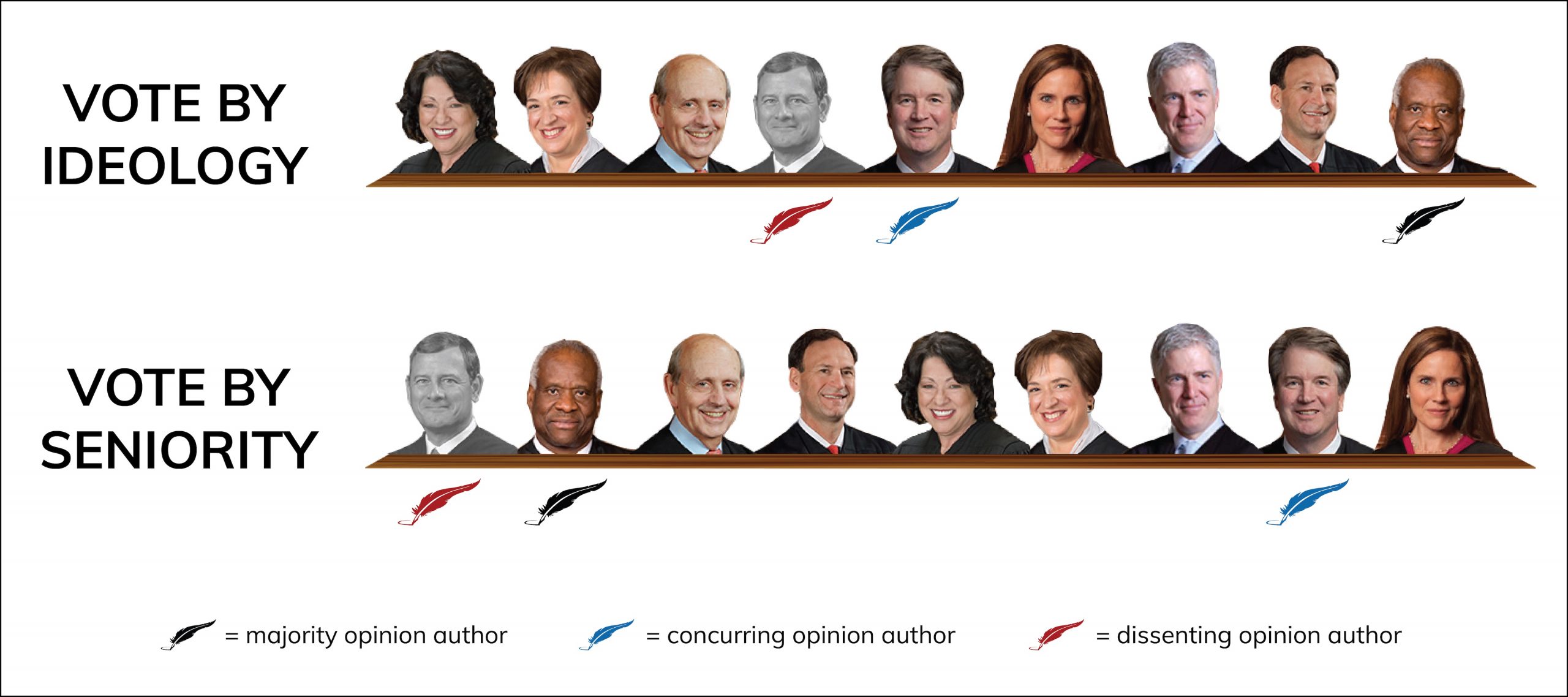OPINION ANALYSIS
Court revives lawsuit from student seeking nominal damages for free-speech violation at public college

on Mar 8, 2021 at 11:45 am

Update (Monday, March 8, 3:30 p.m.): This article has been updated with expanded analysis.
The Supreme Court on Monday issued a major ruling in a dispute over free speech on the grounds of a public college. By a vote of 8-1 in Uzuegbunam v. Preczewski, the court allowed a Georgia student to proceed with a First Amendment lawsuit against college officials even after the officials abandoned the speech restrictions at issue.
The student, Chike Uzuegbunam, is an evangelical Christian who was handing out religious literature on the campus at Georgia Gwinnett College when a campus police officer told him that he could only distribute literature by reserving one of two designating areas. When Uzuegbunam followed that advice and reserved an area, another police officer told Uzuegbunam that his speech was disturbing other people and therefore violating the college’s ban on “disorderly conduct.”
Uzuegbunam went to federal court, where he contended that the college’s policies violated the First Amendment. After the college changed policies and Uzuegbunam (along with Joseph Bradford, another student who had joined the lawsuit) graduated, the trial court threw out the case. It ruled that although Uzuegbunam had asked for nominal damages – an award that is small or largely symbolic, such as a dollar – in addition to his request for an order blocking the college from enforcing the now-rescinded policies, that was not enough to allow the case to continue. The U.S. Court of Appeals for the 11th Circuit upheld that decision, agreeing that the case was moot – that is, no longer a live controversy. Uzuegbunam went to the Supreme Court, which on Monday reversed.
In an opinion by Justice Clarence Thomas, the court explained that because Uzuegbunam showed that he was injured and that his injury resulted from the officials’ conduct, the question before the justices was whether he meets the third criterion to have a legal right to sue: Is he seeking a remedy that is likely to correct the constitutional violation in the case?
Thomas began by looking back at the role of nominal damages in early English and American law. It was “well established,” he explained, that nominal damages were available when rights were violated, even “without furnishing any evidence of actual damage.” Otherwise, Thomas observed, there would have been no remedy at all for some violations, “such as due process or voting rights, that were not readily reducible to monetary valuation.”
Because nominal damages were available as a remedy in early English and American law, Thomas continued, a request for nominal damages will meet the third criterion to have a legal right to sue as long as the plaintiff’s claim is based on a violation that has already finished.
Thomas emphasized that the court’s ruling would not “guarantee[] entry to court” whenever a plaintiff asked for nominal damages. A plaintiff, he stressed, would still have to meet all of the other requirements to allow his lawsuit to go forward. But in this case, Thomas continued, because there is no dispute that “Uzuegbunam experienced a completed violation of his constitutional rights” when the officials enforced the college’s speech policies, and because “nominal damages can redress Uzuegbunam’s injury even if he cannot or chooses not to quantify that harm in economic terms,” his case can proceed. (The justices did not weigh in on whether Bradford’s case should be reinstated, instructing the lower courts to determine whether his rights had been violated.)
Justices Stephen Breyer, Samuel Alito, Sonia Sotomayor, Elena Kagan, Neil Gorsuch, Brett Kavanaugh and Amy Coney Barrett joined the Thomas opinion. Kavanaugh also filed a one-paragraph concurring opinion in which he indicated that he agreed with Chief Justice John Roberts and the Department of Justice that “a defendant should be able to accept the entry of a judgment for nominal damages against it and thereby end the litigation without a resolution of the merits.”
Roberts was – for the first time since he joined the court in 2005 – the lone dissenting justice. He would have ruled that because the speech restrictions no longer exist and the student had not asked for any “actual damages,” the case was moot – that is, no longer a live controversy. He reasoned that without either actual damages or the threat of injury at some point in the future, an award of nominal damages simply represents a determination by the court “that the plaintiff’s interpretation of the law is correct — nothing more.” Under the Supreme Court’s decision on Monday, Roberts suggested, “federal courts will be required to give advisory opinions whenever a plaintiff tacks on a request for a dollar.”
Although the question came to the court in the context of free speech on campus, it could have much broader implications, as Barrett noted at the oral argument in January. Barrett asked a lawyer for the Department of Justice whether a dispute over a New York City gun law, which the Supreme Court dismissed as moot after the city changed its policy, might have come out the other way if the challengers had sought nominal damages. His answer? Yes.
This article was originally published at Howe on the Court.


